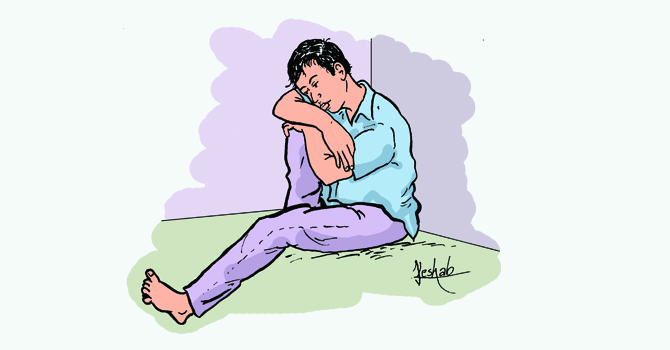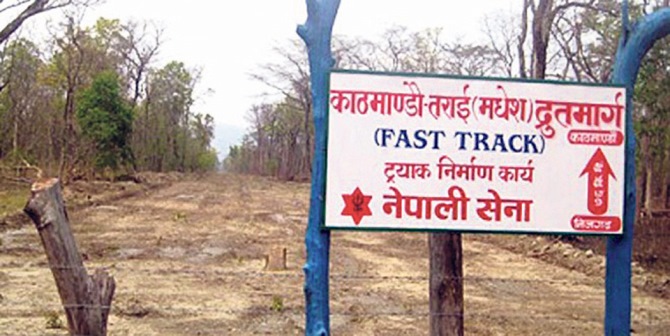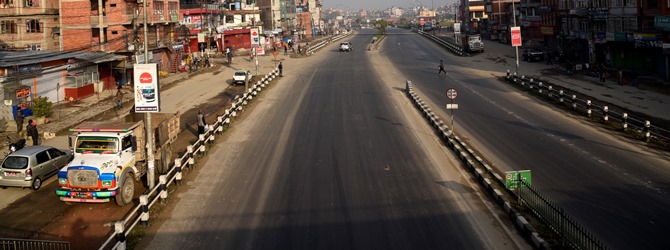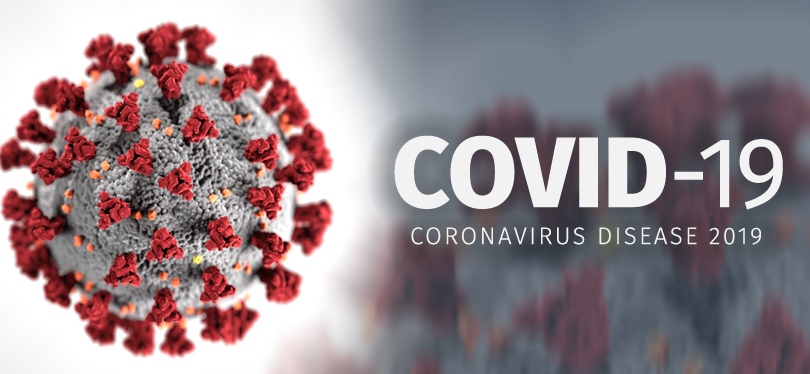Help overcome helplessness, hopelessness to stop suicide: Experts

By Purushottam P. Khatri
Kathmandu, July 8: When someone feels his social connectivity, personality and dignity impaired, he is likely to commit suicide at any time, sociologists, psychologists and psychiatrists said.
This is applicable to all individuals, be they from well-off or poor families, they said.
According to the sociological perspective when people keep themselves disconnected from the society or even from their own family members for a long time, they have a high chance of killing themselves, Dr. Chaitanya Mishra, a professor of sociology at Tribhuvan University, told The Rising Nepal.
“Reasons like money, rape, and fear of failure are not the direct reasons behind committing suicide but it is detachment of a person from his/her society and family members, because when he/she feels that there is a society that always judges him/her on everything he/she gives up on the society,” sociologist Dr. Mishra said.
During this lockdown, many people who have been going through problems of mental health, depression, and anxiety are also not getting proper and timely counseling, and during such a situation they may do anything to finish off themselves, he said.
But according to psycho-social counselor and clinical supervisor at Transcultural Psychosocial Organisation Nepal (TPO Nepal), Bharat Gautam, there are lots of other reasons for committing suicide. Among them, when people pass through mainly three stages of helplessness, hopelessness and worthlessness, they kill themselves by applying different methods.
People in the society are mainly of three different natures – fatalistic (believing in fate), egoistic, altruistic and anomic - and each type can commit suicide at any time. There are some impulsive people who can commit suicide abruptly without thinking anything, he said. Such impulsive cases of suicide in Nepal amount to only 5 per cent of the total cases of suicide, he said.
According to Gautam, 90 per cent of suicide cases are committed by people already having some severe mental health problems. Also, people having problems of severe depression and anxiety and fear have 80 per cent chances of committing suicide.
A National Mental Health Survey conducted by the Nepal Health Research Council in 2018 showed that 8.7 per cent youths and 10.9 per cent middle-aged people think of killing oneself. The survey had also showed that 12.9 per cent of the total population of the country had certain kind of mental health problem.
Dr. Sagun Ballav Panta, lecturer at TU Teaching Hospital and medical psychologist, said suicide is one impulsive decision of a person that comes to the mind at one time and when he cannot manage it, it terminates in suicide.
Rather than tackling the problems that surface in one’s life, they choose suicide as permanent solution to their particular problem, he said.
Coverage of suicide related news in media had also become a sensitive issue as majority of newspapers and television channels gave wide coverage of suicide cases committed by celebrities, and ultimately may have provocative impact among other people.
What is the treatment?
Psychiatrist Dr. Kamal Gautam at Karuna Hospital said the more people keep themselves socially connected and engaged in the daily life of the society at least in voluntary jobs, the less the chance of committing suicide.
People are socially connected, but they try to keep themselves aloof when they get trapped in some personal problems, he said.
Counselor Gautam also said people’s connectivity with the society is the most important and crucial factor to keep people away from such perception. The role of friends, family and colleagues would always be important, he said.
People already having mental health problems, depression, and anxiety must be treated with medicine or psycho-social counseling and it is difficult at this time of lockdown. He said his institution had managed a toll free number 16600102005 to address such problems during the lockdown.
People having suicidal thoughts may be few and far between when they get right platform to share and exchange personal feelings and problems they have been going through, Gautam said.
He suggested the government and all medical institutions to connect mental health with the health service system.
Recent News

Do not make expressions casting dout on election: EC
14 Apr, 2022
CM Bhatta says may New Year 2079 BS inspire positive thinking
14 Apr, 2022
Three new cases, 44 recoveries in 24 hours
14 Apr, 2022
689 climbers of 84 teams so far acquire permits for climbing various peaks this spring season
14 Apr, 2022
How the rising cost of living crisis is impacting Nepal
14 Apr, 2022
US military confirms an interstellar meteor collided with Earth
14 Apr, 2022
Valneva Covid vaccine approved for use in UK
14 Apr, 2022
Chair Prachanda highlights need of unity among Maoist, Communist forces
14 Apr, 2022
Ranbir Kapoor and Alia Bhatt: Bollywood toasts star couple on wedding
14 Apr, 2022
President Bhandari confers decorations (Photo Feature)
14 Apr, 2022





.jpg)




